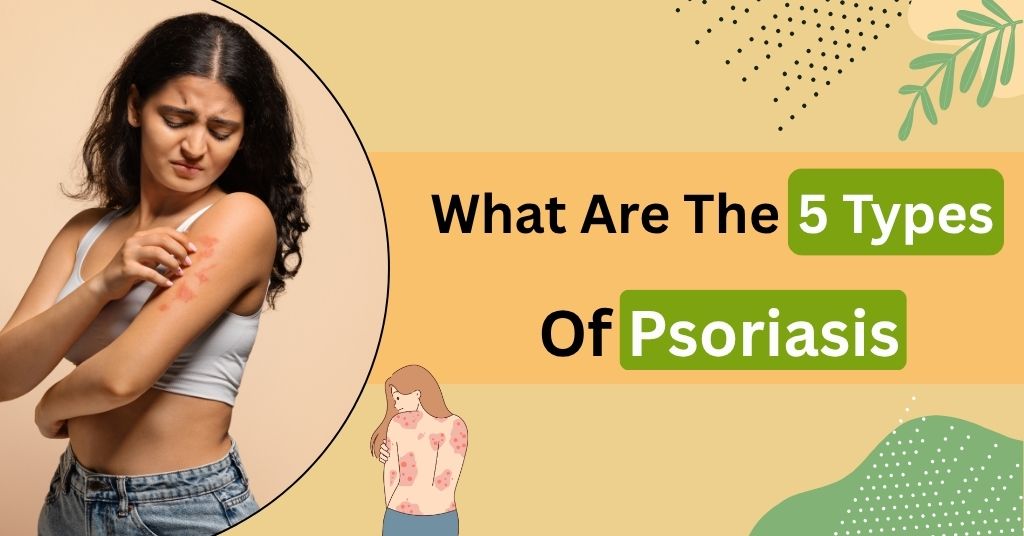Understanding psoriasis!
Psoriasis is a chronic (long-lasting) skin condition where skin cells proliferate too quickly due to the hyperactive immune system. The scalp, elbows, or knees are the most common areas where scaly, inflammatory skin patches appear, although other body parts may also be impacted. These can cause pain, disrupt your sleep, and make it difficult to focus. Infections, cuts, burns, and some medications are common causes of psoriasis in persons who are genetically predisposed to it. There are several natural therapies to assist you in controlling your symptoms. You can also try coping mechanisms and lifestyle changes to make your life with psoriasis easier. A combination of environmental & genetic factors plays a crucial role in the development of the disease.
Signs and symptoms of psoriasis can occasionally appear in phases, with flare-ups lasting a few weeks or months, followed by times when they go away or enter remission. There are numerous approaches to treating psoriasis. The type and severity of your condition will determine the course of treatment you take. Creams and ointments are frequently effective treatments for mild psoriasis, although pills, injections, or more severe treatments may be necessary for moderate and severe cases. Controlling typical triggers like stress and skin injuries can also assist in maintaining symptom management.
What are the symptoms of psoriasis?
Although psoriasis symptoms differ from person to person, some typical ones include:
- Usually found on the elbows, knees, scalp, trunk, palms, and soles of the feet, these patches of thick, red skin with silvery-white scales can itch or burn
- Cracked, dry skin that bleeds or itches
- Pitted, thick, and ridged nails
- Inadequate quality of sleep
- Psoriatic arthritis, a similar condition that some patients have, is characterized by stiff, swollen, or painful joints; back or neck pain. Psoriatic arthritis can cause lasting damage if left untreated, so it’s critical to visit your doctor as soon as you experience any symptoms
Psoriasis symptoms might appear and disappear. You might experience flare-ups, or periods when your symptoms worsen, followed by periods when you feel better.
Types of psoriasis
Guttate Psoriasis
Approximately eight percent of people struggling with psoriasis develop guttate psoriasis. Although this form of psoriasis may develop at any stage, it often begins to appear at an early stage. Initial symptoms of guttate psoriasis include small, round, red or discolored patches primarily caused by inflammation. It can affect any part of the body, but the initial signs and symptoms may appear on the arms, legs, and torso.
Pustular Psoriasis
Three percent of people struggling with psoriasis develop this form of psoriasis. Initial symptoms include pustules, which are white, pus-filled, and painful bumps often surrounded by inflamed, reddened, and discolored skin. Such kinds of psoriasis spots may affect the entire body or develop only on certain parts of the body.
Plaque Psoriasis
Affecting about eighty percent of the people struggling with psoriasis, it is the most common type. Raised and inflamed patches of itchy and painful scales may appear anywhere on the body as the signs and symptoms. The skin may turn red with silvery-white scales in some individuals. Depending on the skin type, the plaques may sometimes appear purple as well. Although it can affect any part of the body, it often appears on the scalp, knees, and elbows; these areas may also be affected around the belly button and lower back.
Inverse Psoriasis
Almost one-fourth of the people struggling with psoriasis are diagnosed with the inverse type of psoriasis. The signs and symptoms include inflamed, dark red or darkened skin, which is smooth and not scaly. This form of psoriasis typically affects areas with skinfolds, such as the underarms, under the breasts, the genital area, and the buttocks. The patches may cause severe itching and pain, and this discomfort is exacerbated by rigorous rubbing and sweating.
Erythrodermic Psoriasis
Affecting approximately two percent of people living with psoriasis, this form causes extreme redness and discoloration, sometimes, along with the shedding of skin layers in large sheets. It can be life-threatening, as it often affects the entire body. Several common symptoms include extreme itching and pain, differences in heart rate and temperature, dehydration, and changes in nail patterns.
Does homeopathy offer a permanent solution for psoriasis?
For those who struggle with psoriasis, homeopathic natural, side-effect-free treatment offers hope through its comprehensive and holistic treatment options. To cure psoriasis permanently, these alternative therapy medications aim to address the underlying causes of the disorder. As previously stated, the immune system plays a crucial role in determining the manifestation of psoriasis. Homeopathic treatment for psoriasis reduces the formation of psoriatic scales on the skin and efficiently aids the immune system’s healing process.
Bharat Homeopathy
To determine a permanent cure for psoriasis, you or a loved one must consult with several medical professionals who specialize in the condition. Treating psoriasis requires an integrated approach that includes seeking proper medical advice, making dietary modifications, implementing lifestyle changes, and practicing self-care. The most crucial part is selecting an appropriate treatment strategy, even if each of these factors is crucial.
Offering the best homeopathic remedy for psoriasis, Bharat Homeopathy steps forward. Instead of only decreasing symptoms, their knowledgeable specialists create personalized treatment programs that address the root causes of psoriasis, such as immune system abnormalities.
The use of natural medicines by Bharat Homeopathy significantly reduces the likelihood of adverse effects commonly associated with traditional treatments. Their emphasis on patient-centric care includes regular follow-ups and continuous monitoring to make sure the patient is making progress as a result of the treatment. For psoriasis, Bharat Homeopathy is a reliable and safe option because it provides long-lasting relief.


